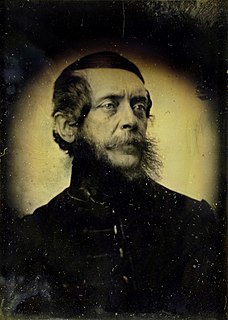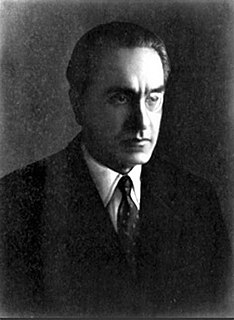A Quote by Albert J. Nock
Like all predatory or parasitic institutions, its first instinct is that of self-preservation. All its enterprises are directed first towards preserving its own life, and, second, towards increasing its own power and enlarging the scope of its own activity. For the sake of this it will, and regularly does, commit any crime which circumstances make expedient.
Related Quotes
The State always moves slowly and grudgingly towards any purpose that accrues to society's advantage, but moves rapidly and with alacrity towards one that accrues to its own advantage; nor does it ever move towards social purposes on its own initiative, but only under heavy pressure, while its motion towards anti-social purposes is self-sprung.
There are two ways in which we may attain control over our activity. The first is confidence in the power of our own will; to know that if we have failed today, tomorrow we will not do so. The second is to have our eyes wide open, and to watch keenly our activity in all aspects of life. It is in the dark that we fall, but in the light we can see where we are going.
K. Dot was a kid who was trying to find himself in music, finding trends, um, bending towards - ready to bend towards what the industry was telling me to do and after you mature at a certain time in your life, you come into your own...your own niche, your own personality, not only as an artist but as a person.
Liberty ... was a two-headed boon. There was first, the liberty of the people as a whole to determine the forms of their own government, to levy their own taxes, and to make their own laws.... There was second, the liberty of the individual man to live his own life, within the limits of decency and decorum, as he pleased -- freedom from the despotism of the majority.
With the unknown, one is confronted with danger, discomfort, and care; the first instinct is to abolish these painful states. First principle: any explanation is better than none. . . . The causal instinct is thus conditional upon, and excited by, the feeling of fear. The "why?" shall, if at all possible, not give the cause for its own sake so much as for a particular kind of cause -- a cause that is comforting, liberating, and relieving.
I am already kindly disposed towards you. My friendship it is not in my power to give: this is a gift which no man can make, it is not in our own power: a sound and healthy friendship is the growth of time and circumstance, it will spring up and thrive like a wildflower when these favour, and when they do not, it is in vain to look for it.
Don't you dare underestimate the power of your own instinct. Instinct is a lifesaver for sharks and entrepreneurs alike. Most people can recall times they ignored their gut only to regret it later. Learning to actually listen to your instinct is a great form of self-preservation. It's both incredibly easy and tough at the same time, but worth the effort to master.
Prior to the advent of the civilization of the Third Estate (mercantilism, capitalism), the social ethics that was religiously sanctioned in the West consisted in realizing one’s being and in achieving one’s own perfection within the fixed parameters that one’s individual nature and the group to which one belonged clearly defined. Economic activity, work, and profit were justified only in the measure in which they were necessary for sustenance and to ensure the dignity of an existence conformed to one’s own estate, without the lower instinct of self-interest or profit coming first.






































